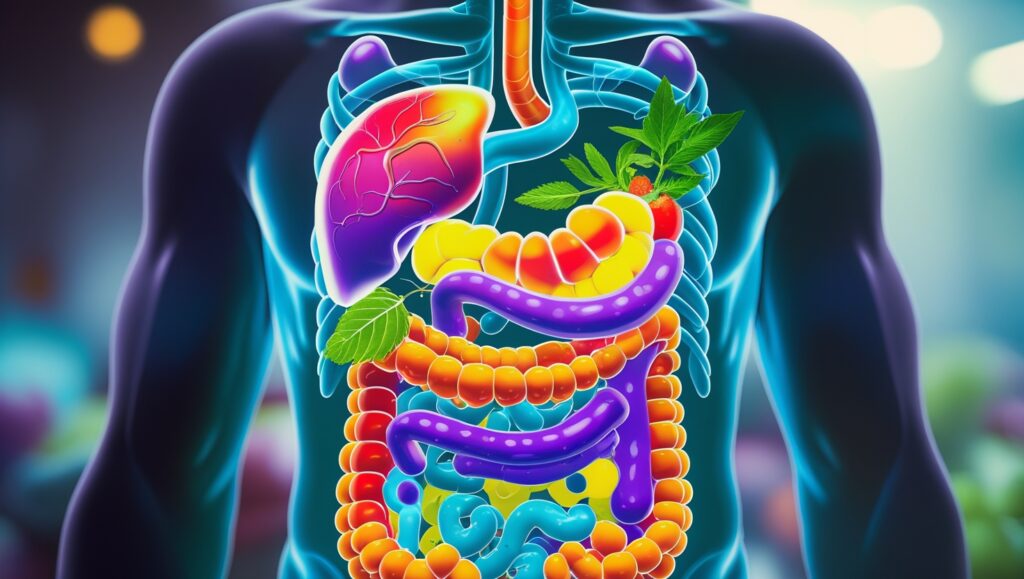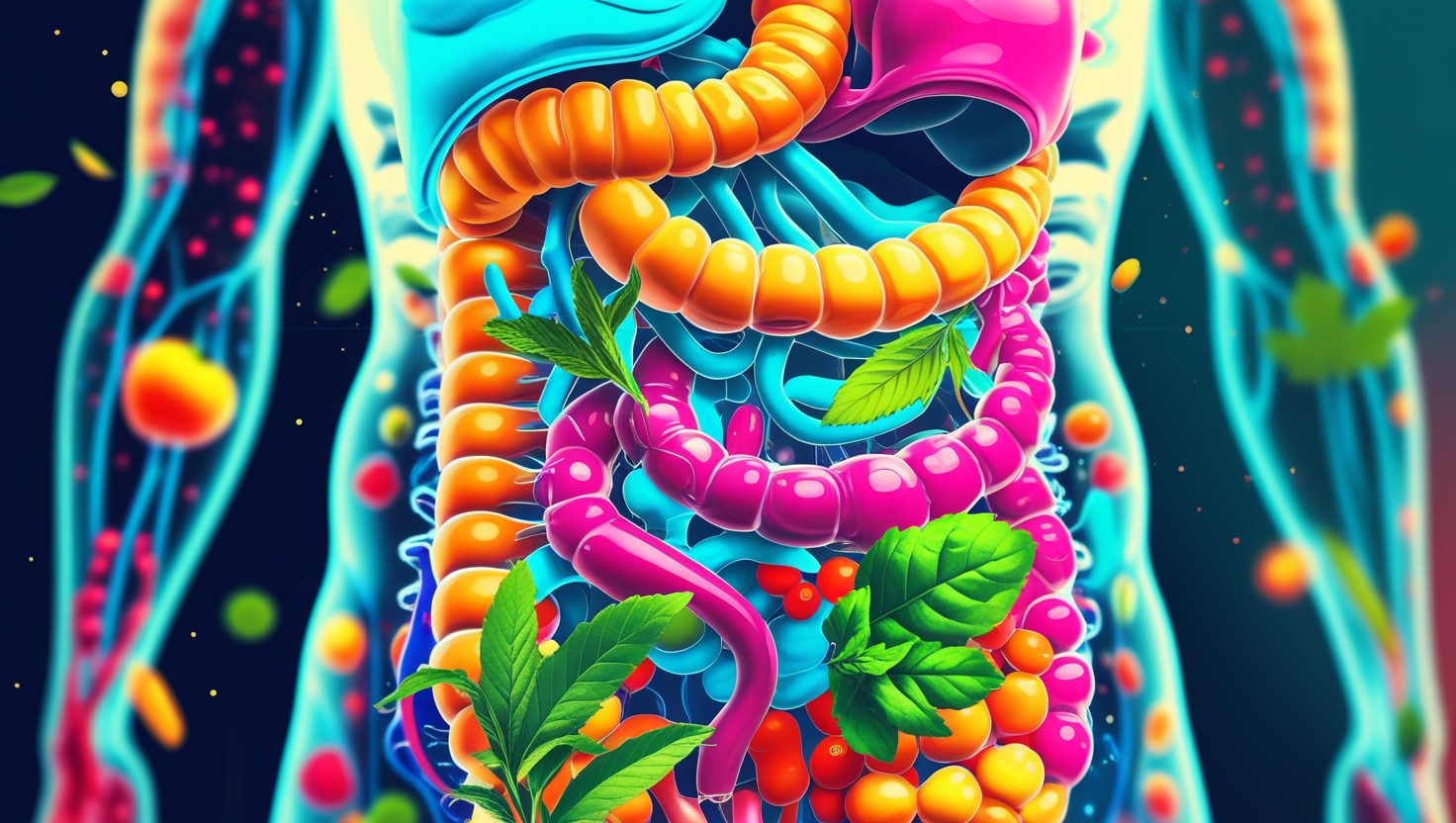In today’s fast-paced world, maintaining good gut health has become a cornerstone of overall well-being. The digestive system not only processes food but also plays a vital role in immune function, mental health, and even mood regulation. Understanding your gut and the way it functions can lead to better health, more energy, and a happier life.
Discover Top Gut Health Supplements – Boost Your Digestive Wellness Today!
What is Gut Health?
Gut health refers to the balance and function of the entire digestive system, especially the gastrointestinal (GI) tract. A healthy gut is characterized by a robust and diverse community of microorganisms—often called the gut microbiome—which plays a crucial role in digestion, nutrient absorption, and immune support.

Key Components of Gut Health:
- Microbiome: Trillions of bacteria that help digest food and fend off pathogens.
- Digestive Tract: The complex system of organs responsible for breaking down food.
- Gut Barrier: The lining of the intestines that prevents harmful substances from entering the bloodstream.
An imbalance in the gut, known as dysbiosis, can lead to various health issues ranging from digestive discomfort to chronic inflammation and mood disorders.
For more insights on dietary habits that support gut health, read our article on Healthy Eating Habits.
Key Benefits of a Healthy Gut
A well-functioning digestive system provides numerous benefits that extend beyond just digestion. Maintaining gut health can positively influence several aspects of your overall wellness:
- Enhanced Immunity: A balanced gut microbiome is essential for a strong immune system.
- Improved Mood and Mental Health: The gut produces neurotransmitters like serotonin, which can affect mood and stress levels.
- Better Nutrient Absorption: A healthy gut ensures that vitamins, minerals, and other nutrients are efficiently absorbed.
- Weight Management: Improved digestion and nutrient metabolism can contribute to a healthier body weight.
- Reduced Inflammation: A balanced gut can help manage and reduce systemic inflammation.
Common Digestive Issues
Despite its importance, many people struggle with digestive problems. Here are some of the most common issues related to gut health:
- Bloating and Gas: Often caused by poor digestion or an imbalance in gut bacteria.
- Irritable Bowel Syndrome (IBS): A condition that causes discomfort, irregular bowel movements, and abdominal pain.
- Acid Reflux: Occurs when stomach acid flows back into the esophagus.
- Constipation: Difficulty in bowel movements can be a sign of inadequate fiber intake or dehydration.
- Food Sensitivities: Certain foods may trigger an adverse reaction if the gut is already imbalanced.
Explore Our Top-Rated Digestive Health Solutions – Improve Your Gut Health Now!
Top Tips for a Happier, Healthier Digestive System
Improving your gut health doesn’t have to be complicated. Here are ten proven strategies that can help you achieve a balanced and thriving digestive system.
1. Eat a Balanced Diet Rich in Fiber
A diet high in fiber is crucial for maintaining a healthy gut. Fiber aids digestion, prevents constipation, and feeds beneficial bacteria.
- Fruits and Vegetables: Rich in vitamins, minerals, and antioxidants.
- Whole Grains: Oats, quinoa, and brown rice are excellent sources of dietary fiber.
- Legumes and Nuts: Provide protein and healthy fats along with fiber.
Tip: Aim for at least 25-30 grams of fiber daily.
Learn more about fiber benefits in our article on Healthy Eating Habits.
2. Include Probiotics and Prebiotics
Probiotics are live beneficial bacteria, while prebiotics are non-digestible fibers that fuel these good bacteria. Both are essential for a balanced gut.
- Probiotic Sources: Yogurt, kefir, sauerkraut, and other fermented foods.
- Prebiotic Sources: Garlic, onions, bananas, and asparagus.
Suggestion: Consider incorporating a high-quality probiotic supplement if your diet lacks these foods.
Check Out Our Recommended Probiotic Supplements – Start Your Gut Health Journey!
3. Manage Stress Effectively
Chronic stress can wreak havoc on your digestive system by disrupting the gut-brain axis. Finding effective ways to manage stress is essential for gut health.
- Mindfulness and Meditation: Regular practice can reduce stress and improve digestion.
- Physical Activity: Exercise helps release tension and improves overall well-being.
- Adequate Sleep: Quality sleep is crucial for stress management and gut recovery.
Tip: Incorporate at least 10-15 minutes of stress-relief activities daily.
4. Stay Hydrated
Water plays a vital role in digestion by helping to break down food and absorb nutrients. Staying well-hydrated supports the movement of food through the intestines and prevents constipation.
- Daily Goal: Aim for at least eight 8-ounce glasses of water per day.
- Hydration Tips: Carry a reusable water bottle and set reminders to drink water throughout the day.
5. Exercise Regularly
Regular physical activity not only improves overall health but also enhances digestion by stimulating intestinal contractions that move food along the digestive tract.
- Aerobic Exercise: Walking, running, and cycling are excellent choices.
- Strength Training: Incorporate moderate resistance exercises to support overall metabolism.
- Yoga: Particularly beneficial for digestion due to specific poses that massage internal organs.
6. Get Sufficient Sleep
Quality sleep is fundamental for repairing and maintaining the body, including the digestive system. Poor sleep can disrupt the balance of gut bacteria and increase inflammation.
- Sleep Routine: Aim for 7-9 hours of uninterrupted sleep per night.
- Sleep Environment: Create a comfortable, dark, and cool sleeping space to promote better sleep quality.
7. Avoid Processed Foods and Sugars
Highly processed foods, artificial additives, and excessive sugars can disrupt the gut microbiome and lead to inflammation. Focus on whole, unprocessed foods to support digestive health.
- Eliminate: Fast food, sugary drinks, and packaged snacks.
- Include: Fresh fruits, vegetables, lean proteins, and healthy fats.
8. Practice Mindful Eating
Mindful eating involves paying full attention to the eating experience. It encourages you to savor each bite and listen to your body’s hunger and fullness cues.
- Eat Slowly: Chew your food thoroughly to aid digestion.
- Focus on the Meal: Avoid distractions like television or smartphones during meals.
- Reflect: Notice how different foods affect your digestion and overall energy.
9. Consider Natural Supplements and Remedies
Natural supplements can support gut health by providing essential nutrients that may be lacking in your diet.
- Digestive Enzymes: Help break down food and improve nutrient absorption.
- Herbal Remedies: Ginger, peppermint, and turmeric are known for their digestive benefits.
- Fiber Supplements: Can be useful if you’re not getting enough fiber from food alone.
Explore Our Top Natural Gut Health Supplements – Enhance Your Digestive Wellness!
10. Regular Medical Check-Ups and Professional Guidance
Even with a healthy lifestyle, it’s important to consult healthcare professionals if you experience persistent digestive issues. Regular check-ups can help diagnose conditions like IBS, food sensitivities, or other gastrointestinal disorders early on.
- Consult a Gastroenterologist: If you have ongoing digestive discomfort.
- Professional Nutrition Advice: A registered dietitian can offer personalized guidance.
- Stay Informed: Keep up with the latest research and recommendations on gut health.
For additional insights on managing chronic stress and its impact on your body, check out our article on Stress Management Techniques.
Lifestyle Changes and Supplementation for Optimal Gut Health
Beyond the daily habits and dietary adjustments mentioned above, there are broader lifestyle changes you can adopt to further improve your gut health:
- Establish a Routine: A consistent daily routine for meals, exercise, and sleep can significantly impact digestion.
- Reduce Environmental Toxins: Limit exposure to chemicals in cleaning products and processed foods.
- Stay Socially Connected: Social interactions and a supportive community can reduce stress, which in turn benefits the gut.
- Educate Yourself: Keep learning about gut health through reputable sources and stay updated on new research.
Learn More About Our Comprehensive Gut Health Programs – Your Path to Better Digestion Starts Here!
The Gut-Brain Connection
Recent scientific studies have highlighted the close relationship between the gut and the brain, often referred to as the “gut-brain axis.” This bidirectional communication system means that a healthy gut can influence mental clarity, mood, and even cognitive function.
Key Points:
- Neurotransmitter Production: The gut produces a significant amount of serotonin, a key neurotransmitter that regulates mood.
- Stress Response: A balanced gut can help modulate the body’s stress response.
- Cognitive Function: Emerging research suggests that the gut microbiome can impact brain function and may play a role in conditions such as anxiety and depression.
Understanding and nurturing this connection is crucial for overall health and mental well-being.
Expert Advice and Additional Resources
Experts in the field of nutrition and digestive health emphasize the importance of a holistic approach to gut wellness. Incorporating both lifestyle changes and, when necessary, professional guidance can lead to significant improvements.
- Consult Experts: Consider seeking advice from nutritionists, dietitians, and gastroenterologists.
- Join Communities: Online forums and local support groups can provide additional tips and shared experiences.
- Stay Updated: Regularly read scientific journals, reputable blogs, and health websites for the latest insights.
Subscribe Now for Exclusive Gut Health Tips and Expert Interviews – Empower Your Digestive Journey!
Final Thoughts and Action Steps
A healthy gut is the foundation of overall well-being. By implementing these 10 proven strategies, you can support your digestive system, reduce inflammation, and improve your overall quality of life. Remember, the journey to optimal gut health is a continuous process of learning and adaptation.
Quick Recap:
- Eat a Balanced, Fiber-Rich Diet: Prioritize whole foods and natural fibers.
- Incorporate Probiotics and Prebiotics: Feed your gut with the right bacteria.
- Manage Stress: Utilize mindfulness and stress reduction techniques.
- Stay Hydrated: Water is essential for digestion.
- Exercise Regularly: Physical activity supports healthy digestion.
- Ensure Quality Sleep: Sleep allows the body to repair and rejuvenate.
- Avoid Processed Foods: Choose natural, unprocessed foods.
- Practice Mindful Eating: Savor every bite and listen to your body.
- Utilize Natural Supplements: Support digestion with enzymes and herbs.
- Seek Professional Guidance: Consult experts if issues persist.
Every small change you make can contribute to a happier, healthier digestive system. Take the time to experiment with these strategies and find what works best for your body. With persistence and the right approach, you’ll notice improvements in energy levels, mood, and overall health.
Share this content:










